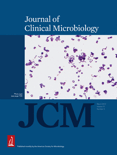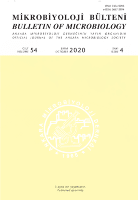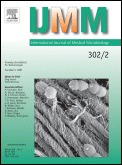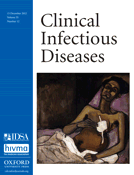
Archives of Clinical Infectious Diseases
Scope & Guideline
Empowering Professionals with Cutting-Edge Research
Introduction
Aims and Scopes
- Epidemiology and Public Health:
Research on the distribution, patterns, and determinants of infectious diseases in populations, including studies assessing the incidence and prevalence of various infections. - Antimicrobial Resistance:
Investigation into the mechanisms, prevalence, and consequences of antimicrobial resistance, including resistance patterns among bacterial and fungal isolates. - Infectious Disease Diagnostics:
Development and evaluation of diagnostic methods for infectious diseases, including serological assays, molecular techniques, and innovative approaches to enhance detection. - Clinical Management and Treatment Outcomes:
Studies on treatment protocols, clinical outcomes, and the effectiveness of various therapeutic interventions for infectious diseases, with a focus on patient management. - Emerging Infectious Diseases:
Exploration of novel pathogens, outbreaks, and the epidemiological dynamics of emerging infections, including zoonotic diseases and their impact on human health. - Vaccine Research and Immunology:
Research on vaccine efficacy, immunological responses to infectious agents, and the role of vaccination in controlling infectious diseases.
Trending and Emerging
- COVID-19 Research:
An overwhelming trend towards COVID-19-related research, examining various aspects from clinical management to vaccine efficacy and long-term effects on health. - Antimicrobial Stewardship:
Growing interest in strategies to combat antimicrobial resistance, including stewardship programs and novel therapeutic approaches to enhance treatment efficacy. - Infectious Disease and Comorbidities:
A rising focus on the interplay between infectious diseases and other chronic conditions, particularly how they affect outcomes in vulnerable populations. - Molecular and Genomic Epidemiology:
Increased emphasis on molecular techniques for tracking and understanding the evolution of pathogens, including genetic resistance patterns and outbreak tracking. - Innovative Diagnostic Approaches:
Emergence of new diagnostic technologies and methodologies to improve the detection and management of infectious diseases, particularly in resource-limited settings.
Declining or Waning
- Non-communicable Disease Interactions:
Studies exploring the interactions between infectious diseases and non-communicable diseases have seen a decline, possibly as the focus shifts towards directly addressing infectious disease management. - Traditional Infectious Disease Epidemiology:
There appears to be a reduced emphasis on classical epidemiological studies of established infectious diseases, as newer methodologies and technologies are prioritized. - Local Pathogen Research:
Research focused solely on local pathogens without broader implications or applications may be decreasing, as global health perspectives gain more traction.
Similar Journals

JOURNAL OF CLINICAL MICROBIOLOGY
Empowering Professionals with High-Impact InsightsJOURNAL OF CLINICAL MICROBIOLOGY, published by the American Society for Microbiology, stands as a premier resource for researchers and professionals in the field of medical microbiology. With an illustrious history dating back to 1975, this journal has consistently provided high-impact research, reflecting its status in the Q1 category among microbiology (medical) journals, and an impressive Scopus rank of 14 out of 140, placing it in the 90th percentile. The journal's commitment to unveiling foundational and innovative studies greatly contributes to understanding human health challenges posed by microbial pathogens. Researchers can expect rigorous peer-reviewed articles that cover a spectrum of topics, from diagnostic methods to clinical epidemiology, fostering a deeper understanding of microbiology's role in healthcare. While this journal does not offer open access options, its substantial impact factor underscores its relevance in shaping the conversation in clinical microbiology. The JOURNAL OF CLINICAL MICROBIOLOGY is indispensable for anyone dedicated to advancing their knowledge and practical skills in microbiology.

Infectious Diseases and Therapy
Connecting researchers for a disease-free future.Infectious Diseases and Therapy is a premier scholarly journal published by Springer London Ltd, dedicated to advancing the understanding of infectious diseases through rigorous research and evidence-based therapy. With an esteemed Q1 ranking in both the Infectious Diseases and Microbiology (medical) categories, this journal is a vital resource for researchers, healthcare professionals, and students aiming to stay at the forefront of developments within the field. Launched in 2012, it has embraced an Open Access model, ensuring that groundbreaking studies and critical reviews are accessible to a global audience. Operating from its office in London, the journal encourages the dissemination of innovative therapies and diagnostic methods, fostering collaboration and knowledge sharing among the scientific community. In a landscape where infectious diseases pose significant health challenges, Infectious Diseases and Therapy stands as an essential platform for impactful research that can lead to improved healthcare outcomes worldwide.

MIKROBIYOLOJI BULTENI
Advancing the Frontiers of MicrobiologyMIKROBIYOLOJI BULTENI, with ISSN 0374-9096, is a prestigious academic journal published by the ANKARA MICROBIOLOGY SOC, located in Ankara, Turkey. Established in 1973, this journal has been a vital conduit for disseminating research in the fields of Immunology, Microbiology, and Infectious Diseases, garnering a reputation as a significant contributor to the scientific community. The journal is currently ranked in the Q3 category within Immunology and Microbiology (miscellaneous), and Infectious Diseases, indicating its impactful presence amidst contemporary research. With access options that may be restricted, MIKROBIYOLOJI BULTENI actively welcomes submissions that advance the understanding of critical microbiological principles and practices, thereby supporting both national and international research efforts. Researchers, professionals, and students are encouraged to explore the latest findings shared in this journal, as it continually shapes the landscape of microbiology and infectious disease studies through its comprehensive and rigorous peer-reviewed publications.

INFECTION
Elevating Knowledge in Infectious DiseasesINFECTION is a prestigious journal, published by Springer Heidelberg, that serves as a leading platform for the dissemination of critical research in the fields of Infectious Diseases, Microbiology, and Medicine. With an impressive Q1 ranking in multiple categories such as Infectious Diseases, Medicine (miscellaneous), and Medical Microbiology, the journal is recognized for its high-quality content and impactful contributions to the scientific community, as evidenced by its Scopus rankings placing it in the top 10th percentiles. Since its inception in 1973, and projected to continue until 2024, INFECTION has established itself as a vital resource for researchers, healthcare professionals, and students keen to explore the latest findings and advancements in infectious diseases. The journal provides a rigorous peer-review process, ensuring that only high-quality studies are published, making it an essential read for those seeking to deepen their understanding and stay abreast of the rapidly evolving landscape in infection research.

INTERNATIONAL JOURNAL OF MEDICAL MICROBIOLOGY
Advancing the Frontiers of Microbial ResearchWelcome to the International Journal of Medical Microbiology, a leading publication in the field of microbiological research and infectious diseases, offered by Elsevier GmbH. Established in 2000, this esteemed journal provides a scholarly platform for the presentation of high-quality research, reviews, and innovations that bridge medical microbiology and clinical applications. With an impressive impact factor positioning it within the Q1 category across multiple disciplines, including Infectious Diseases, Microbiology, and Medicine, the journal is recognized for its rigorous peer-review process and significant contributions to advancing our understanding of microbial pathogenesis, diagnostics, and therapeutics. The International Journal of Medical Microbiology is committed to open access, promoting the dissemination of knowledge and accessibility for researchers, professionals, and students worldwide. Based in Munich, Germany, the journal continues to play a vital role in the global scientific community, fostering collaborations and inspiring future innovations in the fight against infectious diseases.

Infectious Diseases
Empowering Researchers to Combat Infectious ThreatsInfectious Diseases, published by TAYLOR & FRANCIS LTD, is a leading academic journal dedicated to advancing research in the field of infectious diseases and microbiology. With an impressive impact factor and categorized in Q1 in multiple areas including Immunology and Microbiology, this journal serves as a critical platform for researchers, practitioners, and students to disseminate their findings and stay abreast of current advancements. The journal is recognized for its rigorous peer-review process and aims to foster innovation and collaboration across disciplines from 2015 to 2024. It boasts a robust Scopus ranking, positioning it favorably among the top-tier of journals in the relevant fields, making it an essential resource for anyone involved in infectious disease research. Access options are available, ensuring that the latest research is accessible to a global audience, thus emphasizing the journal's commitment to promoting knowledge and understanding in the ever-evolving landscape of infectious diseases.

Klimik Journal
Connecting Academia and Practice for Better Health Outcomes.Klimik Journal is a pivotal publication in the fields of Infectious Diseases and Medical Microbiology, serving as a platform for researchers, clinicians, and academics to disseminate groundbreaking findings and improve health outcomes. Established in 2010 and published by DOC DESIGN INFORMATICS CO LTD, this journal is dedicated to advancing knowledge and fostering discussions around critical issues in infectious diseases and microbial research. With an ISSN of 1301-143X and an E-ISSN of 1309-1484, Klimik Journal strives to maintain high academic standards despite currently ranking in the fourth quartile in both categories according to Scopus metrics, which highlights the need for continued contributions to the field. Operating from Turkey, the journal is committed to supporting open access options, thereby ensuring wide dissemination of research findings. As it continues to bridge the gap between theory and practice, Klimik Journal is poised to become an essential resource for those looking to stay at the forefront of infectious disease research and microbiological advancements.

CLINICAL INFECTIOUS DISEASES
Advancing the fight against infectious diseases.Clinical Infectious Diseases, published by Oxford University Press Inc, is a premier journal in the fields of infectious diseases and microbiology, distinguished by its esteemed Q1 ranking in both categories as of 2023. Since its inception, the journal has served as a vital platform for disseminating cutting-edge research and significant advancements in the diagnosis, treatment, and prevention of infectious diseases. With a broad scope encompassing clinical trials, epidemiological studies, and public health research, it targets a diverse readership, including researchers, healthcare professionals, and students. The journal's robust reputation is underscored by its impactful contributions to scientific understanding, making it a critical resource for those striving to combat infectious diseases globally. Clinical Infectious Diseases is not open access but offers various subscription options, ensuring comprehensive access to its high-quality content. With a historical continuity from 1985 to present, the journal remains at the forefront of medical research, paving the way for future innovations in the field.

Emerging Microbes & Infections
Transforming understanding of infectious challenges.Emerging Microbes & Infections is a premier open access journal, published by Taylor & Francis Ltd since 2012, dedicated to advancing the understanding of microbial infections and their implications in human health. With an impressive Q1 ranking across multiple categories—including Drug Discovery, Epidemiology, Immunology, and Infectious Diseases—this journal is at the forefront of research in the microbiological sciences. Covering a diverse range of topics, it serves as a vital resource for researchers, healthcare professionals, and students alike. The journal's commitment to open access ensures worldwide dissemination of cutting-edge findings, fostering collaboration and innovation in tackling challenges posed by emerging infections. As part of the thriving academic community in the United Kingdom, Emerging Microbes & Infections plays a crucial role in shaping the future of infectious disease research and public health.

Tropical Medicine and Infectious Disease
Connecting researchers to combat infectious threats.Tropical Medicine and Infectious Disease, published by MDPI, is a leading peer-reviewed journal dedicated to advancing the field of tropical medicine and infectious diseases. With an open access model established since 2016, this journal fosters a collaborative environment for researchers, professionals, and students from around the world to disseminate cutting-edge findings and innovative approaches to public health challenges, particularly in tropical regions. The journal has earned recognition, achieving a Q2 quartile ranking in notable fields including Immunology and Microbiology, Infectious Diseases, and Public Health, Environmental, and Occupational Health in 2023, indicative of its influence and relevance in the scientific community. With a focus on high-quality research, Tropical Medicine and Infectious Disease aims to bridge the gap between basic science and clinical application, providing invaluable insights critical for combating infectious diseases and improving health outcomes in vulnerable populations. The journal’s accessibility and substantial indexing in major databases further solidify its importance as a key platform for impactful research in this essential field.